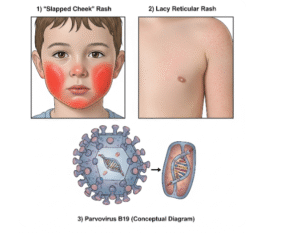Overview
Cardiovascular disease (CVD) encompasses a group of disorders affecting the heart and blood vessels, including coronary artery disease, heart failure, arrhythmias, and stroke. It is a leading cause of morbidity and mortality worldwide, including South Korea. Lifestyle factors, genetics, and chronic medical conditions contribute to its development. Early detection, management, and lifestyle modification are critical to reducing complications and improving quality of life.
What is Cardiovascular Disease?
Cardiovascular disease refers to any condition that affects the heart or blood vessels. It may involve narrowed or blocked arteries (atherosclerosis), weakened heart muscles (heart failure), abnormal heart rhythms (arrhythmias), or vascular problems leading to stroke. CVD can develop gradually over years or present suddenly with acute events like heart attack or stroke.
Symptoms
Symptoms vary depending on the type of cardiovascular disease but may include:
- Chest pain or discomfort (angina)
- Shortness of breath
- Fatigue and weakness
- Palpitations or irregular heartbeat
- Swelling in legs, ankles, or feet (edema)
- Dizziness, fainting, or lightheadedness
- Stroke symptoms: sudden numbness, confusion, difficulty speaking, or vision problems
Causes
- Atherosclerosis (plaque buildup in arteries)
- High blood pressure (hypertension)
- High cholesterol and triglycerides
- Diabetes and metabolic syndrome
- Obesity and sedentary lifestyle
- Smoking and excessive alcohol consumption
- Genetic predisposition or family history of heart disease
- Chronic stress
Risk Factors
- Age (risk increases with age)
- Male gender (higher risk than females until menopause)
- Family history of heart disease
- Smoking and tobacco use
- Poor diet and lack of physical activity
- Obesity and overweight
- High blood pressure, diabetes, or high cholesterol
- Excessive alcohol consumption
- Stress and mental health conditions
Complications
- Heart attack (myocardial infarction)
- Heart failure
- Stroke or transient ischemic attack (TIA)
- Peripheral artery disease
- Kidney disease due to poor blood flow
- Arrhythmias or sudden cardiac death
Prevention
- Maintain a heart-healthy diet rich in fruits, vegetables, and whole grains
- Engage in regular physical activity (at least 150 minutes/week)
- Avoid smoking and limit alcohol consumption
- Monitor and manage blood pressure, cholesterol, and blood sugar
- Maintain a healthy weight
- Manage stress through relaxation techniques and mental health support
- Routine health checkups and cardiovascular screening
Treatment Options in Korea
South Korea offers advanced cardiovascular care with multidisciplinary approaches:
- Diagnosis
- Electrocardiogram (ECG) for heart rhythm assessment
- Echocardiography to evaluate heart structure and function
- Stress tests and cardiac imaging (CT, MRI)
- Blood tests for cholesterol, triglycerides, and cardiac enzymes
- Medications
- Antiplatelet agents (e.g., aspirin) to prevent clot formation
- Beta-blockers and ACE inhibitors to control blood pressure and heart workload
- Statins to manage cholesterol
- Antiarrhythmics for abnormal heart rhythms
- Diuretics for fluid retention in heart failure
- Procedures & Surgery
- Angioplasty and stent placement for blocked arteries
- Coronary artery bypass graft (CABG) surgery
- Pacemaker or implantable cardioverter-defibrillator (ICD) implantation
- Heart valve repair or replacement
- Heart transplant in severe cases
- Rehabilitation & Lifestyle Programs
- Cardiac rehabilitation programs for exercise, education, and counseling
- Nutritional counseling and weight management
- Smoking cessation and stress management programs













